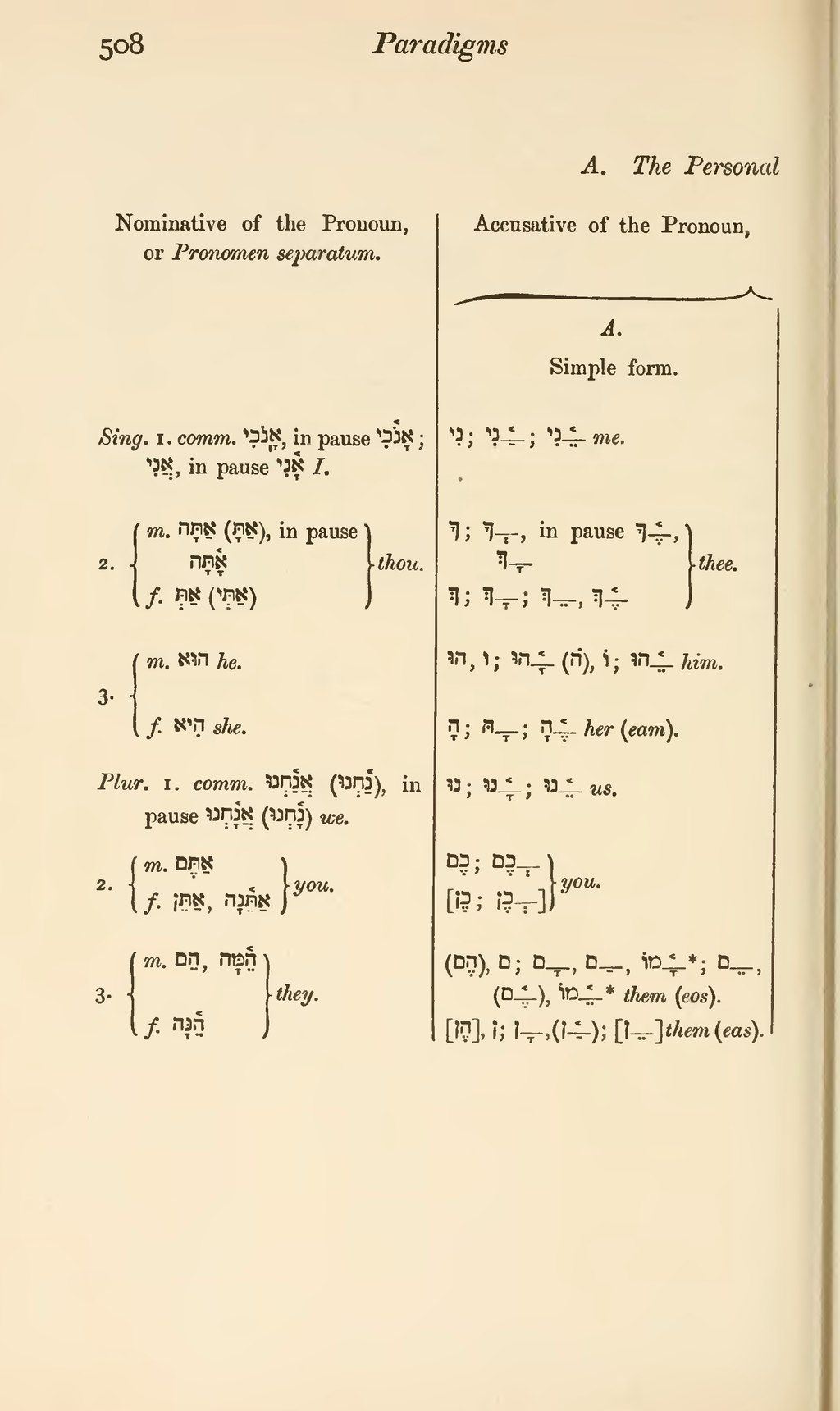This page needs to be proofread.
A. The Personal Pronoun.[1]
| Nominative of the Pronoun, or Pronomen separatum. | Accusative of the Pronoun, or Suffixum Verbi. | |||
|---|---|---|---|---|
| A. Simple form. | ||||
| Sing. 1. c. | I. | אָֽנֹכִי in pause אָנֹ֫כִי; | me. | נִי; ־ַ֫ נִי; ־ֵ֫ נִי |
| אֲנִי, in pause אָ֫נִי | ||||
| 2. m. | thou. | אַתָּה (אַתָּ), in pause | thee. | ךָ; ־ְךָ, in pause ־ֶ֫ ךָ |
| אָ֫תָּה | ־ָךְ | |||
| f. | אַתְּ (אַתְּי) | ךְ; ־ָךְ; ־ֵךְ, ־ֶ֫ ךְ | ||
| 3. m. | he. | הוּא | him. | הוּ, ו; (הֹ)־ָ֫הוּ, וֹ; ־ֵ֫ הוּ |
| f. | she. | הִיא | her (eam). | הָ; ־ָהּ; ־ֶ֫ הָ |
| Plur. 1. c. | we. | אֲנַ֫חְנוּ (נַ֫חְנוּ), in | us. | נוּ; ־ָ֫ נוּ; ־ֵ֫ נוּ |
| pause אֲנָ֫חְנוּ (נָ֫חְנוּ) | ||||
| 2. m. | you. | אַתֶּם | you. | כֶם; ־ְכֶם |
| f. | אַתֵּן, אַתֵּ֫נָה | [כֶן; ־ְכֶן] | ||
| 3. m. | they. | הֵם, הֵ֫מָּה | them (eos). | (הֶם), ם; ־ָם, ־ַם, ־ֶ֫ מוֹ*; ־ֵם, |
| (־ֶ֫ ם), ־ֵ֫ מוֹ* | ||||
| f. | הֵ֫נָּה | them (eas). | [הֶן], ן; ־ָן, (־ַ֫ ן); [־ֵן] | |
